We have expectations, but are often met with a reality that looks much different than we hoped. The good news of Jesus Christ is this: Who he really is, the reality beyond our expectations, is very good news for us.
This advent we discover who Jesus is and what he is promised to be through stories of the Old Testament. There a promise was made and expectations began. From the Old Testament to now, we learn Jesus is much better than we expected.

Invocation
Make the sign of the cross, and say,
In the name of the Father, and of the Son, and of the Holy Spirit. Amen.
Invitation Prayer
Jesus Christ is the Light of the world. The light no darkness can overcome.
Jesus, open our eyes to your light and our ears to your words of hope. Come, O long-expected Jesus. Our hope is in you. Amen.
Word: 2 Samuel 12:10
“‘Now therefore the sword shall never depart from your house, because you have despised me and have taken the wife of Uriah the Hittite to be your wife.’”
Meditation: Uriah’s Wife by Megan Roegner
In Matthew’s genealogy of Jesus, four women are mentioned: Tamar, Rahab, Ruth, and “the wife of Uriah.” But only one of these women is not identified by name. We know that “Uriah’s wife” is Bathsheba, the married woman David spies bathing, the woman he, the king, orders his messengers to bring to him. The woman whose husband he has killed in an attempt to conceal his shame.
Bathsheba is only identified as “the wife of Uriah” in 2 Samuel 12 as well. In the prophet Nathan’s parable, Bathsheba is symbolized by a “little ewe lamb” (v. 3), taken from her poor but loving owner by a callous rich man. As a woman who loves women’s stories, I have to wonder why Bathsheba’s name disappears from the narrative. And why, even after David marries her, is she referred to as Uriah’s wife?
Of course, the obvious answer is that referring to Bathsheba as a vulnerable lamb or as Uriah’s wife emphasizes David’s sin. This is a turning point in David’s tumultuous life—just as he demands “fourfold” justice for the poor man whose lamb was taken, he himself will tragically lose four sons: first Bathsheba’s baby and then three as adults, killed by family members. David must reap what he has sown. The great sin of this great man proves our need for the redemption of a perfect, blameless Savior.
But our Savior sees and loves women. I have to think that to him, Bathsheba is more than simply a plot point in someone else’s story.
In trying to learn more about Bathsheba, I learned that along the famous, and generally salacious, images of Bathsheba bathing, medieval artists sometimes depicted Bathsheba as an antetype of both Mary and as Ecclesia, the Church personified. In the medieval practice of typology, an antetype is an Old Testament figure that foreshadows a New Testament figure.
Just like “Uriah’s wife,” Mary, too, conceives a son outside of her marriage. Mary, too, must suffer the loss of this son because of other people’s sins. However, the typology of Bathsheba as Mary focuses on her relationship with her second son, Solomon, the wise king, himself an antetype for Jesus. But, like his father, even great king Solomon falls short, showing our need for a better kind of King.
As Ecclesia, “Uriah’s wife,” the vulnerable ewe lamb, tells us something about our relationship with Christ as his bride. We are loved, completely. But in this broken world, we too often are prey to the thieves that Jesus talks about in John 10; we are also too easily led astray, like the lost sheep in Matthew 18. We need a Bridegroom who loves us even more than Uriah loved his wife, who is more powerful even than King David.
Jesus, you see us in our brokenness, both when we hurt others and when others hurt us. Thank you for loving us completely and saving us entirely. Amen.
Prayer for Family
· For my immediate family (parents, spouse, siblings).
· For extended family (cousins, aunts and uncles, grandparents)
· For close friends that are as family to me.
· For those who don’t have families, or whose families are broken.
· For forgiveness and reconciliation where there is division in my family.
· For provision where there is need in my family.
· For God to be the foundation, and the cross the center of my family.
· For a generation yet unborn, future members of our family.
Closing Prayer
Lord God, you enter into our mess. You meet us in the midst of fear, uncertainty, and doubt. You break through with eternal hope, that through the life and death and resurrection of Jesus all our pain will be healed, all of our sin is forgiven, all of our messes will be redeemed. May we live in that hope this day, amen!
